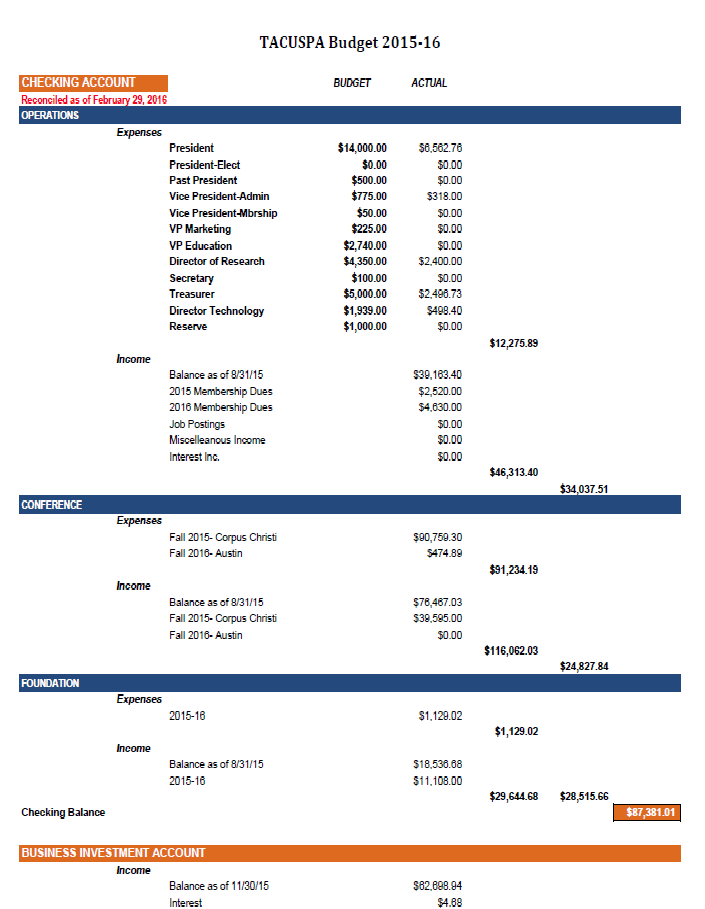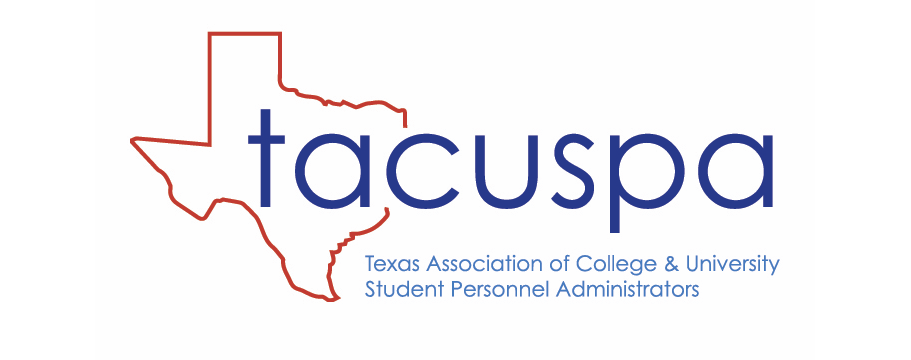
 |
SPRING 2016 |
|
The poet T.S. Elliott wrote that “April is the cruelest month.” I’m not sure if that’s true, but I do know that it’s a busy one. I often find myself darting from event to event. There are lot of banquets celebrating student’s accomplishment, projects that are coming to fruition and, of course, final assessments that need to be conducted before the students scatter for the summer. I won’t lie to you, I find it hard to attend to my wellness and keep my work and life in balance. The sheer volume of chicken or lasagna I eat at the various banquets I attend put me off both until at least July. My 10 and 12 years olds have a lot going on during the period of time, too and my wife and I frequently huddle by the phone near the end of the day to make sure that one of us will pick them up from their various activities. By the time I have reached the first week of May, I feel like the person crawling across the finish line at a marathon. So, it’s important for me to stop every once in a while during April to remember what all of this is about. While awards banquets and event take up a lot of my free time, they remind me of how many significant accomplishments and milestones our students reach in a given year. While assessment represents a task that I need to accomplish by a given deadline, it also shows me the difference that our programs and services make in the lives of our students. When my children attend these events with me, they illustrate for them how hard work often pays off in the end. As you enter the “cruel” month of April, remember that it is also kind. And if that doesn’t work, remember that May will deliver to you the opportunity to register for this year’s TACUSPA conference which will take place October 23-25, 2016 at the AT&T Center in Austin, Texas. If the knowledge that we will all be together again soon to share our stories and learn from each other doesn’t pull you out of your funk, perhaps nothing will. All the best!
Adam Peck, TACUSPA President The 2016 TACUSPA Conference will be held in October 23-25, 2016 in Austin, Texas at the AT&T Conference Center. The conference theme is Picturing our Future, Telling our Story. Featured speakers will include Dr. Richard P. Keeling, Principle and Senior Executive Consultant at Keeling and Associates, LLC; Dr. Marcia Baxter Magolda, Distinguished Professor of Educational Leadership and Student Affairs at Miami University of Ohio; and Marybeth Drechsler Sharp, Executive Director for the Advancement of Standards in Higher Education.
Renew your TACUSPA membership today! We hope that you find value in your TACUSPA membership! All membership renewals are due by April 15. Remember this is essential for you to vote in the April Board of Directors selection and proposed constitutional amendment change. Individual memberships are $35. Student memberships, which are for full time students who are not also employed full time at an institution, are $20. If you are going to renew as an individual go to www.tacuspa.net, log in, and follow the prompts to renew. Some institutional memberships are currently in progress. If your college/university has submitted a renewal already and included you, your membership will automatically be renewed. TACUSPA Communities of Practice As a community of higher education professionals in Student Affairs, it is our responsibility and privilege to facilitate ongoing communication about our respective knowledge areas. Communities of Practice assist us in the exchange of ideas through providing a community of individuals who may assist budding Student Affairs professionals with best practices and seasoned professionals a network of similarly focused colleagues. Joining a Community of Practice (COP) is easy. When you renew your TACUSPA membership, scroll through, update your profile and select which COP you would like to join. You will be contacted by the Chair of the COP you selected. Communities of Practice:
We have such powerful connections through our fellowship at the TACUSPA conference. Participating in COP will keep these connections strong throughout the year.
Are you looking for a way to honor a recent graduate? What better way to honor a recent graduate than by investing in the future of undergraduate students, graduate students, and new professionals? The TACUSPA Foundation supports graduate student scholarships, fellowships, research grants and more. Honor your graduate by making a donation to the Foundation in their name. Making a donation is easy. You can donate on-line by doing to the TACUSPA website, http://www.tacuspa.net/Donation_Sponsorships. This will take you to our donation form. All donations to the TACUSPA Foundation are tax deductible under TAX ID 75-1644217. Join other TACUSPA members in upcoming webinars, which are free for TACUSPA members. Visit the webinar page http://www.tacuspa.net/webinars for more information on the scheduled webinars listed below. Graduate Student Case Study Competition April 20, 12:00-1:00pm CST Ethics in Higher Education: Identifying Actual Experiences to Enhance Training for New Professionals May 18, 12:00-1:00pm CST Early College High School Graduates: Translating Pre-College Credits into Post-Secondary Success June 15, 12:00-1:00pm CST Why Should Student Affairs Assess? July 20, 12:00-1:00pm CST Staff Development: How to Create the 5 Functions of a Team September 21, 12:00-1:00pm CST Biggest Buzz Award from the 2016 TACUSPA Conference November 16, 12:00-1:00pm CST Lacey Claver Assistant Director for Student Engagement Lacey Claver is the Assistant Director for Student Engagement at Stephen F. Austin State University (SFA) in Nacogdoches, TX. She currently serves as co-coordinator for the 2016 TACUSPA Conference. She holds a bachelor’s degree in Human Sciences and a master’s degree in interdisciplinary studies; both from SFA. At SFA she oversees the University’s 200+ organizations and serves as the primary advisor for the Traditions Council and the award-winning Involvement Center. In addition, Lacey coordinates the University homecoming festivities and freshman transition camp. “I am grateful of the opportunity to work with TACUSPA, and look forward to years of continued service.” The Student Affairs On Campus editorial board has suspended the release of the third volume while we reorganize. We are in the process of creating submission and review guidelines. An update will be provided by the end of the semester. The journal will be accessible to practitioners and scholars alike, and will expand publishing opportunities. We are building on the great start by Rishi Sriram & the original editorial board, and moving the journal to the next step. Please contact Jeff Jackson, Director of Research, at jacksonj3@uthscsa.edu, with any questions. Gender and Sexual Diversity in U.S. Higher Education: Contexts and Opportunities for LGBTQ College Students: New Directions for Student Services By Sara Miller, The University of Texas at Austin In the last year, the United States has seen a significant increase in conversations concerning the structures of power that oppress LGBTQ people and communities. In June, the U.S. Supreme Court effectively legalized same-sex marriage. The following month, well known retired decathlete and Olympic gold medal winner Caitlyn Jenner won the Arthur Ashe Courage Award shortly after coming out as a trans woman. At the same time, states and cities have seen a proliferation of regressive legislation and referendums, such as Houston voters repealing an anti-discrimination ordinance in November. As we continue to see legislation and conversations that rapidly alternate between institutionalizing support and reinforcing phobias, we must now, more than ever, consider the ways in which we cultivate inclusivity for LGBTQ students on our campuses. In December, New Directions for Student Services released a sourcebook, Gender and Sexual Diversity in U.S. Higher Education: Contexts and Opportunities for LGBTQ College Students. Edited by Dafina-Lazarus Stewart, Kristen A. Renn, and G. Blue Brazelton, the volume examines the growing body of research on the experiences of LGBTQ students, contextualizes evolving perceptions of LGBTQ issues on and off campuses, and offers suggestions for future research and increased student support. The sourcebook is divided into five chapters from contributors, with a sixth from the editors that includes a summary and recommendations. In the editor’s notes that preface the volume, Stewart, et. al. share their conceptual framework for the compendium, emphasizing the importance of intersectionality and recognizing the complexity of students’ identities. The volume is organized around ecological perspectives that recognize the various macro- and microsystems that interact with and influence individual students’ experiences. In addition, the volume uses a competency-based approach and the term minoritized, rather than minority, so as to acknowledge the systems of oppression that designate some identity groups as belonging to a lesser status. Thus, the acronym MIoSG (minoritized identities of sexuality and gender) is frequently used throughout the sourcebook to refer LGBTQ students. In Chapter 1, T.J. Jourian provides a historical context of the language and terms that have been used to refer to LGBTQ identities, from the “invention” of homosexuality in 19th century Europe, as described by Foucault, to the connections between 20th century racism and a proliferation of bifurcated labeling in the United States. Most importantly, Jourian asks that we carefully consider the ways our use of language connotes insider/outsider status. In Chapter 2, Annemarie Vaccaro, E.I. Annie Russell, and Robert M. Koob discuss the overlapping contexts, including institutional, familial, national, regional, local, historical, and personal skills and strengths, which influence student identity, developing a MIoSG Students in Campus Context Model. In Chapter 3, Jodi L. Linley and David J. Nguyen map out the curricular contexts that influence LGBTQ student experience, and in Chapter 4, Debra Bazarsky, Leslie K. Morrow, and Gabriel C. Javier examine co-curricular contexts, collaborations between campus partners, and the cumulative affect of microaffirmations. Finally, in Chapter 5, Susan (Sue) Rankin and Jason C. Garvey address best methods for conducting quantitative research that can provide more nuanced data about LGBTQ students’ identities, including re-conceptualizing survey designs to include more identity categories, the option to write in alternate responses, and allowing survey takers to select multiple responses. Three themes stand out prominently in this sourcebook: the impact of language, the necessity of excavating our unconscious assumptions, and the complexity and interactivity of our micro- and macro-interactions. As we step back and look at the bricolage of our students’ identities, we must consider the salient role that gender and sexual identities often play in our students’ lives, and this collection is a great place to start. Stewart, D.-L., Renn, K. A., & Brazelton, G. B. (2015). Gender and Sexual Diversity in U.S. Higher Education: Contexts and Opportunities for LGBTQ College Students. New Directions for Student Services, 2015(152). US: Jossey-Bass Ltd. University of Houston - Assistant Director for Residential Life (Staffing and Advising) The Assistant Director of Residential Life is an integral part of Student Housing and Residential Life’s (SHRL’s) leadership team. The Assistant Director provides the vision and leadership for areas of responsibility that ensures that residential life is advancing the SHRL Mission, Vision, and goals as well as the Division's Strategic Initiatives. The Assistant Director for Residential Life reports to and provides support for the Associate Director for Residential Life. University of Houston - Assistant Director for Residential Life (Student Conduct) The Assistant Director of Residential Life is an integral part of Student Housing and Residential Life’s (SHRL’s) leadership team. The Assistant Director provides the vision and leadership for areas of responsibility that ensures that residential life is advancing the SHRL Mission, Vision, and goals as well as the Division's Strategic Initiatives. The Assistant Director for Residential Life reports to and provides support for the Associate Director for Residential Life. University of Houston-Clear Lake seeks a Coordinator of Student Life focusing on Student Leadership, Involvement and Community Engagement (SLICE). Master’s degree is required. Two years of full time experience working with student leadership training and development programs, community engagement/service learning, programming activities, and working with student groups in a college or university setting. Knowledge of organizational and leadership/student development as well as service learning ethical/professional standards and best practices. Must have excellent interpersonal skills and knowledge of human relations and group dynamics. Must pass criminal history record check. Full-time with benefits. Salary: $2,587.50 - $3,287.42 per month. Read more... | Candidate Profiles for the 2016 TACUSPA Elections Below are the candidates in the running for the 2016 TACUSPA officer elections. For each candidate you will find his/her title, university/college, and statement of candidacy. Biographical information can be found on the TACUSPA website at www.tacuspa.net/elections. Ballots and voting information will be sent to all members on Monday, April 25, 2016. Please remember to renew your membership so that you may participate in the elections. PRESIDENT - ELECT
Interim Director of Advising/Director of Student Development, Leadership and Activities I believe our biggest challenge is to remain a valued resource for our membership, and to position ourselves to be attractive to those institutions and individuals who are not members. It only seems appropriate to me that we exercise every opportunity to expand that membership. As President, my focus will be on taking advantage of every opportunity to continue to bring cutting edge professional development, research and networking opportunities to advance the work of Student Affairs across our state. We must constantly be conscious of the needs of our membership, and in many ways even anticipate those yet to be identified needs. I will continue to expand opportunities for TACUSPA to support research in our field by engaging our graduate and doctoral program faculty and students across the state to take advantage of our research grants and scholarships.
Dean of Student Affairs I am honored to be nominated for president-elect. I love this wonderful organization and community that joins together professionals and faculty around commonalities within the field. Many other states desire the community this organization creates among its members. The president-elect role, like so many others in the organization, is vital to propel the organization forward in sustaining its reputation as a premier state organization. In my current role as VP of Education and Professional Development for TACUSPA, I worked with members to redesign many of our professional development and educational opportunities. My StrengthsFinder themes are Learner, Achiever, Discipline, Focus, and Individualization, so I personally enjoy working with people to investigate innovative and systematic methods to deliver high quality programs. I hope to continue contributing these unique qualities to TACUSPA in the presidential role. There are multiple forces necessitating change within higher education, which requires us all to examine our current and future role in developing and producing thriving students on our campuses. As TACUSPA executes its 2020 strategic plan, the president-elect will need to ensure that the 1) organization’s membership grows and diversifies; 2) membership is supported and has access to a comprehensive array of professional development opportunities; and 3) strategic partnerships are forged that advocate for the importance and role of student affairs in higher education’s future. I believe these strategies will help professionals better support students on their campuses, so I will advocate for opportunities like these to enhance our community of informed and engaged professionals and educators. VICE PRESIDENT OF EDUCATION AND PROFESSIONAL DEVELOPMENT
Coordinator, Student Activities During the past sixteen years as a student affairs professional, I have had only four official titles, but many positions. This experience is not unusual in Student Affairs as we strive to meet the needs of our students and the campus community with the resources available to us. It is for this reason I appreciate TACUSPA for providing ongoing, relevant professional development in a variety of Student Affairs areas. I fully understand the importance of creating and developing applicable educational programs for our membership. As the Vice President for Education and Professional Development I will assess and implement topics of interest to be included in the educational and webinar programming. In 2014 I was asked to serve as the Chair for the Community College Community of Practice and in 2015, I was provided the opportunity to Chair the Communities of Practice. There is much work to be done to increase awareness of and participation in these networks. The networks have amazing potential to become dynamic resources for aspiring and veteran Student Affairs practitioners. My goal for these communities is to increase participation and create a robust source of knowledge to benefit the profession. I am thankful for the opportunity to serve in any capacity with TACUSPA, and I welcome the opportunity to do so as the Vice President for Education and Professional Development. Iliana Mendez Student Conduct Officer My journey with TACUSPA began in El Paso, Texas when I handed Thomas Moorman my donation to the TACUSPA Foundation. Since then I have served on four conference planning committees, as Graduate Caucus Chair, as a member of the TACUSPA Foundation Board, and have served as Co-Chair and Chair of Scholarships & Fellowships for two years. My commitment to TACUSPA is genuine, as it has been my pleasure to serve and grow as a professional alongside many wonderful colleagues. As the Chair for Scholarships and Fellowships, it has been a pleasure to work with our current Vice President for Education & Professional Development in the expansion of the number of graduate student scholarships offered for the TACUSPA Annual Conference, updating our Operations Manual so that is reflective of our timeline and the number of scholarships awarded to students and new professionals, and ensuring that the process moving forward will be more inclusive of graduate students from across the state and its respective institutions. I am excited about continuing to grow our Scholarship and Fellowship program, especially in how we market the opportunities available to our membership. I hope to further develop our communities of practice, so that our membership is fully aware of their function and benefits. I would also like to explore the possibility of hosting webinar sessions, and/or series, specific to our graduate students, new professionals, and mid managers. This would allow us to advertise TACUSPA and further diversify our membership.
Assistant Vice President, Student Services TACUSPA has been very instrumental in connecting me with colleagues around the state who share the same vision and goals for Student Affairs that I have. When I came to Texas over nine years ago, I was not familiar with all of the colleges and universities in the state; nor did I know anyone at those institutions. TACUSPA connected me with individuals that I consider friends and even mentors today. Therefore I want to continue to be involved with TACUSPA to learn from the Student Affairs leaders in the state and those visionaries who are developing wonderful programs for the students we serve on our campuses. I want to continue to help the association by providing top level educational and professional development opportunities for the TACUSPA membership to help further cultivate and develop student affairs professionals across the state. Furthermore, I would like to continue the work of the TACUSPA leadership by continuing to develop new, creative platforms to reach new members and to provide relevant information to Student Affairs leaders throughout the state in a timely fashion. VICE PRESIDENT FOR MARKETING
Senior Coordinator, Residential & Transition Programs To this day, I still remember the keynote speaker from the opening reception at my very first TACUSPA Conference. There was something about that night, being amongst TACUSPA colleagues for the first time, that gave me the assurance that being a member of TACUSPA would help me better serve the students on my campus. I haven’t missed a TACUSPA Annual Conference since and, as expected, TACUSPA has been my “home base” for professional development. By stepping into a leadership role, I am hopeful to give back to an organization that has given me so much. As Vice President of Marketing, I aspire to contribute to the team in such a way that ensures the enthusiasm we’ve come to expect from the Annual Conference lasts year-round! I would welcome the challenge of exploring strategies to increase dialogue amongst the TACUSPA membership so that learning opportunities are maximized and this organization guides our collective practice as Higher Ed Professionals.Mercedes Moreno Assistant Director of Alumni Relations It is with great passion and enthusiasm that I accept my nomination for Vice President for Marketing. Over the past three years I have had the opportunity to observe and collaborate with multiple TACUSPA leaders. After my first TACUSPA conference I knew this is where I was meant to put forth my energy and create a new era of marketing initiatives that would best benefit the current and prospective membership. My experience serving in multiple roles regulating marketing and promotion includes e-newsletters, social media outlets and email marketing. It is with great confidence to share with you my understanding and dedication to gain the audience to market and inform TACUSPA members. As Vice President for Marketing, I will engage the association in a strategic conversation of our annual marketing plan and materials, while strengthening our brand, followers and content. With the rapid growth of digital marketing, it is essential to have a clear vision to lead the organization. My vision begins with engaging the community of student affairs and integrating our members to develop a strategic plan that enhances our brand, gathering information that will help target community across Texas.
Associate Director, Parent & Family Relations I have many years of experience developing and overseeing printed and electronic communications, which will be useful in creating quality marketing pieces for TACUSPA. Serving on the 2015 Conference Committee gave me a great deal of insight as to how the VP for Marketing needs to collaborate with members and leadership in all aspects of TACUSPA so the organization’s message reaches all constituents. My goals include: 1. Expanding the scope of the TACUSPA newsletter to involve a variety of contributors and provide more information to members I truly believe TACUSPA is a premier state organization dedicated to the profession of student affairs. I look forward to continuing to serve TACUSPA by spreading the word about its amazing professional development, engagement, networking, and scholarship opportunities for student affairs professionals in Texas. TREASURER
Assistant Vice President for Student Engagement & Success I am no stranger to the role of treasurer. My experience goes back to middle school where I was the treasurer of student council and Tom Browne Jr. High. At Stephen F. Austin, I became treasurer to Gamma Sigma Sigma (service sorority) where I brought the chapter out of the red and continued to grow the financial stability of the organization for the next 2 years. I served as TACUSPA conference co-chair in 2012. Our roles were divided and I worked with registration and all financial related information pertaining to the conference, by the way, if I haven’t said it, thanks Lisa Nagy for all your guidance. I believe I have the qualities, know how, communication and interpersonal skills to make a good treasurer. I have been a member of TACUSPA since 1999 and currently serve on the TACUSPA Foundation Board as secretary.
Assistant Vice President for University College My interest in serving as the Treasurer for TACUSPA stems from my belief in the 2015-2020 strategic plan. As the organization prepares to execute the plan I believe that my experience serving on multiple conference committees, including serving as Co-Chair for the 2016 committee, and my involvement with other initiatives have provided me with an understanding of the association’s funds and processes. Furthermore, I believe that my professional experience managing multiple budgets, including those funded by revenue sources, company sponsorships, and designated university funds, provides me with a credible foundation to contribute to this role. Since my involvement with TACUSPA has been recent and in depth, I believe that serving as Treasurer will allow me to make meaningful contributions to the Board and ensure that the following goals are achieved: 1. Clearly define how fiscal resources and goals are aligned with the TACUSPA’s mission, vision and strategic plan2. Create and propose a development plan to formalize sponsorship opportunities for TACUSPA 3. Ensure that financial reports are accurately prepared, transparent and timely 4. Ensure that members understand how revenue is generated, initiatives are funded and how funds are allocated towards expenses DIRECTOR OF ASSESSMENT
Director of Student Activities
In this role, my goals would be to:
Director of Assessment and Planning Assessment can include everything from counts to capturing learning outcomes, from leading research to student affairs practice, and increasingly, predictive analytics and data mining. As the premier state association for student affairs, TACUSPA must facilitate the navigation between and among these areas while lifting the caliber of the assessment done in the State of Texas. And I feel that the role of the Director of Assessment can fulfil that need. TACUSPA includes a full range of student affairs practitioners, from those new to assessment or who have assessment as a limited set of responsibilities to those who are full-time in assessment, evaluation, and/or research pushing boundaries of data use and analysis for student affairs. I have worked in Texas for close to 16 years in various institutional types and roles across student affairs. As a full-time assessment professional for the last 3 years, I have worked tirelessly to elevate the profession of student affairs through the use of data and assessment and I would hope to bring the same to the TACUSPA Board of Directors. If elected as Director of Assessment, my goals are to:
Andrea Mitchen Assistant Dean of Students In early 2015, I decided to take a more active role in TACUSPA by accepting the position of Assessment and Evaluation Chair for the 2015 conference because I see value in this organization and what it allows us to do as coalition in the state of Texas. I then accepted the new position of Director of Assessment on the Board because I saw what we could accomplish when we all work together. I am invested in progressing the organization through assessment and my role on the Board and I hope to continue to serve in this role as I have only begun. Assessment gives us perspective. It is more than numbers and data, it explains our story and it can validate the work we do or push us as professionals to do things differently. As the current and first Director of Assessment for the organization, I am working to establish a strong role for this position on the Board and my goals have been and are: 1. Continuing to improve organizational communication and resources available to the membership regarding assessment |
Rotter’s locus of control: Applications for higher education and retention Jake C Crawley Abstract Locus of control (LOC) was initially devised as a variable within the wider scope of social learning theory in an attempt to more fully understand the role reinforcements play with expectations and anticipations. It has continuously developed and become a theoretical construct in and of itself. This paper seeks to discuss LOC as an increasingly quantitative variable and explore the use of LOC as a concept across multiple fields and disciplines. Of particular interest is the exploration of LOC as a mutable and dynamic personality variable impacting student success and retention at the undergraduate level. Internal versus external perceptions of control, influence, and expectation have been heavily studied realms of social learning theory in psychology for more than 40 years. The variable associated with this perception, heavily studied by Julian Rotter throughout his career, is often referred to as Locus of Control and describes the degree to which an individual perceives reinforcement or outcome as the result of their direct action or traits versus factors in the outside world (Rotter 1999). Those who are said to have a more internal locus expect outcomes and reinforcements to be the result of their actions, characteristics, or internal states. Those who have a more external locus expect such things to be the result of outside factors like luck, fate, or powerful others. Locus of Control has come a long way as a concept and can now effectively be applied to the resolution of real world problems. This article will focus in particular on ways in which Locus of Control (LoC) could be used actively as a concept to produce tangible results in the realm of higher education. In exploring this possibility the author’s goal is to produce a viable perspective on the challenges facing efforts at solving a real world issue. Literature Review Though it is, to an extent, a contributing concept to the larger field of social learning theory established by Albert Bandura the concept of Locus of Control has taken on a life of its own in many ways and has found traction and utility in various realms ranging from medicine to public safety (Rotter 2011; Huang & Ford 2012; Kayser et al. 2015). In discussing his variable Rotter emphasizes it being the result of a need in the field for refining the ability to predict the way reinforcements influence expectancies. He describes his theory as one that accepts complexity without denying the possibility of operationalized and useful variables for measurement. The concept is based in utility and designed to lend itself naturally to application (Rotter 1975; Rotter 1999). LoC, as described by Rotter, can be broken down into four essential components. First, the concept provides clear and precise definitions and encourages the development and improvement of those definitions to facilitate inquiry. Second, the concept is encompassed and informed by a larger more comprehensive theory, in this case social learning. This allows for an even more clear definition of concept within the context of a theory while also providing a framework for comparative utility when used in and amongst other theories. Third, the concept allows for principles of measurement that are cogent with the theory underpinning the concepts being tested for. This is derived from the second component of theoretical embedding and is exemplary of the holistic theoretical foundation of Rotter’s variable. Lastly, the concept allows for and encourages dissemination of knowledge on the topic of interest. The culmination of the preceding components creates a conceptualized variable that is capable of being quite precise while maintaining the applicability and comprehensive nature needed to make it useful in an array of psychological realms (Rotter 2011; Huang & Ford 2012; Kayser et al. 2015). Historically, measuring and evaluating LOC has utilized empirical methods relying heavily on surveys and created constructs. In more modern studies evaluating the impacts of LoC on life factors and outcomes has become a much more common method of investigation (Gifford, Briceno-Perriot, & Mianzo 2006; Rotter 2011; Huang & Ford 2012; Kayser et al. 2015). This method would be particularly applicable, and theoretically useful, in the context of higher education and retention initiatives. Locus of Control has evolved into a way of conceptualizing how an individual perceives their interaction with the world around them and has come to be viewed as a personality characteristic that is exhibited, nurtured, and changed throughout lifespans (Schurer, Johnston, & Shields 2014). With the evolution of the concept to accept the possibility of individuals locus changing over time came an entirely new realm of possibilities in terms of utility. The concept can now be viewed, not only as a variable for measurement, but also as a tool for improvement of processes, systems, and even people. It is as an active method of influencing individuals’ behavior that LOC will be considered and discussed moving forward (Kayser, Mitchell, Weinsten, & Frank 2014). Realistic Application From 2005 to 2010 first-year student attrition cost the higher education system $6.2 billion dollars at the state level and $1.4 billion dollars federally with a 15% increase in attrition costs from 2003 to 2007 (Schneider 2010). Schneider's work also cites the strong prevalence of first year students to be lost to attrition, with 30% of students nationally dropping out of higher education in their first year. First Year Experience and Retention programs have become more and more common in modern higher education, but we have continued to observe higher attrition rates. Work by Gifford, Briceno-Perriot, and Mianzo in 2006 suggests that an institutional change model may be missing the mark. That the impact of individual student personality characteristics may be a more effective focus to incite real and powerful change. In particular they suggest internal locus of control as a primary indicator and moderator for student success, retention, and eventual graduation. The findings reported by Gifford, Briceno-Perriot, and Mianzo indicate that internal locus exhibits a positive correlation with student success factors and outcomes. These findings are well supported by other existing work on LoC and follow logically from theory. From healthcare, to personal emotional well-being, to public safety research, internal locus of control appears to be a benefit to individual happiness and success (Huang & Ford 2012; Kayser Mitchell, Weinstein, and Frank 2014; Roddenberry & Renk 2010). Initial exploration by Gifford, Briceno-Perriot, and Mianzo was prompted by a perceived need for a focus geared more toward individual characteristics rather than institutional systems as models for positive change. Locus of Control by its nature and as described by Rotter is a product of an individuals perception so it can have the impacts the research indicates are needed on the personal student level, but it is grounded in broader social learning theory allowing for the more generalized approach required for effective administrative action on university policies and systems to incite that growth in students. Research indicating that LoC can change over time based on external social factors supports the notion that an institution of higher learning can significantly impact students’ perceptions of control, and in turn, impact student success and retention (Schurer, Johnston, & Shields 2014). Gifford, Briceno-Perriot, and Mianzo’s work indicates the need for LoC to be a product of individual character and personal growth. This means that any real world intervention would need to be in the form of a system or project to facilitate the shift toward internal locus in a participating individual. As noted in the literature, simply instructing individuals on internal locus, its benefits, and how to achieve it will not, in and of itself, successfully impact students in a way that significantly influences their locus of control (Gifford, Briceno, & Mianzo 2006; Rotter 1975; Rotter 1990). An effective program would have to mobilize departments across a university’s structure to incorporate opportunities for development of internal locus throughout students’ educational journey with a particular focus on the first year. A program like this would also necessitate immersion for students into a context that fosters their personal growth while encouraging them to develop a stronger sense of agency and internal control of their situation and context. Programs meeting these descriptions exist in isolated cases at most institutes. Projects like Campus Reads, Orientations, Welcome Camps, and many other unique and engaging models exist and technically fit the preceding description in isolated cases. That being said few to none in the literature appear to be oriented so directly and particularly on developing internal locus as a character trait for success. Conclusion Put simply we have the theoretical backing and literature to suggest Locus of Control as a significant factor, at the very least indicator, for student success. Our understanding of LoC and the means and patterns by which it changes also suggests that it can be operationalized and used actively to benefit students on a large scale. The challenge we face, then, could easily be considered the flip side of LoC’s strengths as a tool. The variable is deeply rooted in utilization and application. It’s difficult to evaluate how successful a program will be at changing student’s LoC, and thereby improving retention and success, before the program is implemented. We can look back at aspects of programs that have and have not worked in the past, but breaking new ground and pushing the envelope in this conceptual gray area will require, to an extent, a leap of faith by institutions. These programs require cross-campus buy-in to be successful. This sort of engagement and investment can be hard to garner when utilizing tried and true methodologies, much less when discussing implementing something as experimental and forward-thinking as Locus of Control as a mutable and valid success trait. This is a primary challenge, not only for this concept and area of development, but also for many aspects of higher education administration. We often walk a delicate line between theory-based practice and striving for new and unique methods. Where we are allowed to stretch and where we must be cautious is heavily dependent on the context of our schools and our own practices. Regardless of individual school’s unique character the need for improvement and innovation is clear in the field as a whole and in the discussion of this specific area of focus. References Gifford, D. D., Briceno-Perriott, J., & Mianzo, F. (2006). Locus of Control: Academic Achievement and Retention in a Sample of University First-Year Students. Journal of College Admission, 191, 18-25. Huang, J. L., & Ford, J. K. (2012). Driving locus of control and driving behaviors: Inducing change through driver training. Transportation research part F: traffic psychology and behaviour, 15(3), 358-368. Kayser, A. S., Mitchell, J. M., Weinstein, D., & Frank, M. J. (2014). Dopamine, Locus of control, and the exploration-exploitation tradeoff. Neuropsychopharmacology. Roddenberry, A., & Renk, K. (2010). Locus of control and self-efficacy: potential mediators of stress, illness, and utilization of health services in college students. Child Psychiatry & Human Development, 41(4), 353-370. Rotter, J. (2011). Rotter Internal-External Locus of Control Scale. 28 MEASURES OF LOCUS OF CONTROL, 10. Rotter, J. B. (1975). Some problems and misconceptions related to the construct of internal versus external control of reinforcement. Journal of consulting and clinical psychology, 43(1), 56. Rotter, J. B. (1990). Internal versus external control of reinforcement: A case history of a variable. American psychologist, 45(4), 489. Rotter, J. (2011). Rotter Internal-External Locus of Control Scale. 28 MEASURES OF LOCUS OF CONTROL, 10. Schurer, S., Johnston, D. W., & Shields, M. A. (2014). Exploring the evolution and determinants of locus of control over the lifecourse: Evidence from two cohort studies. |
The TACUSPA Newsletter is edited by Christine Self, Associate Director of Parent & Family Relations at Texas Tech University, and Kristy Pacheco, Coordinator of Student Activities and Fraternity and Sorority Life at the University of Texas at El Paso. |



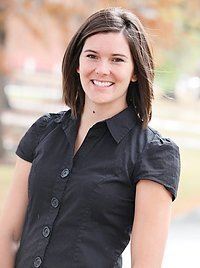
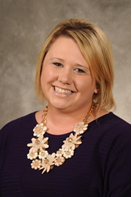
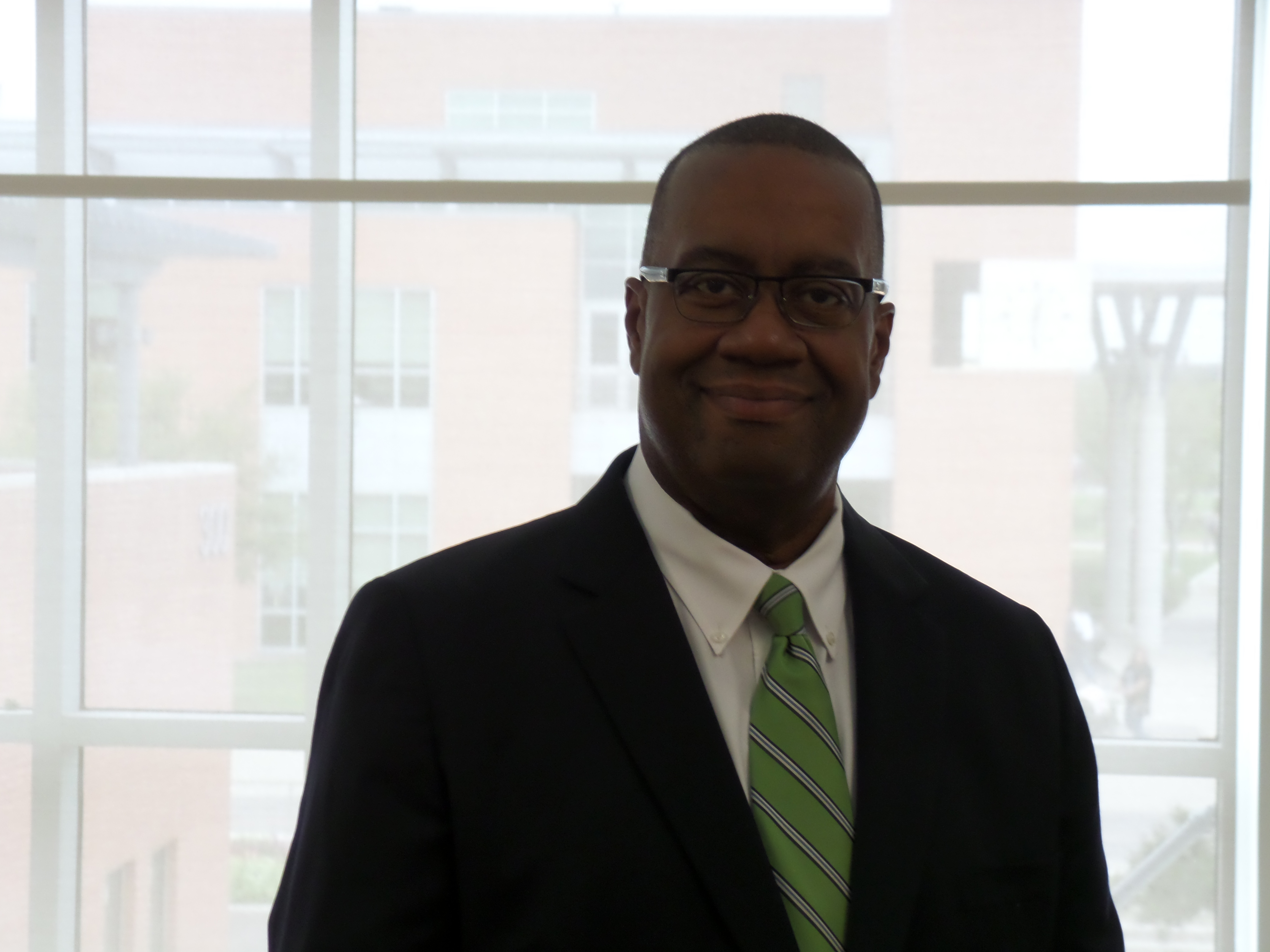 Marlon Anderson
Marlon Anderson Brandon Griggs
Brandon Griggs Claudette Jackson
Claudette Jackson
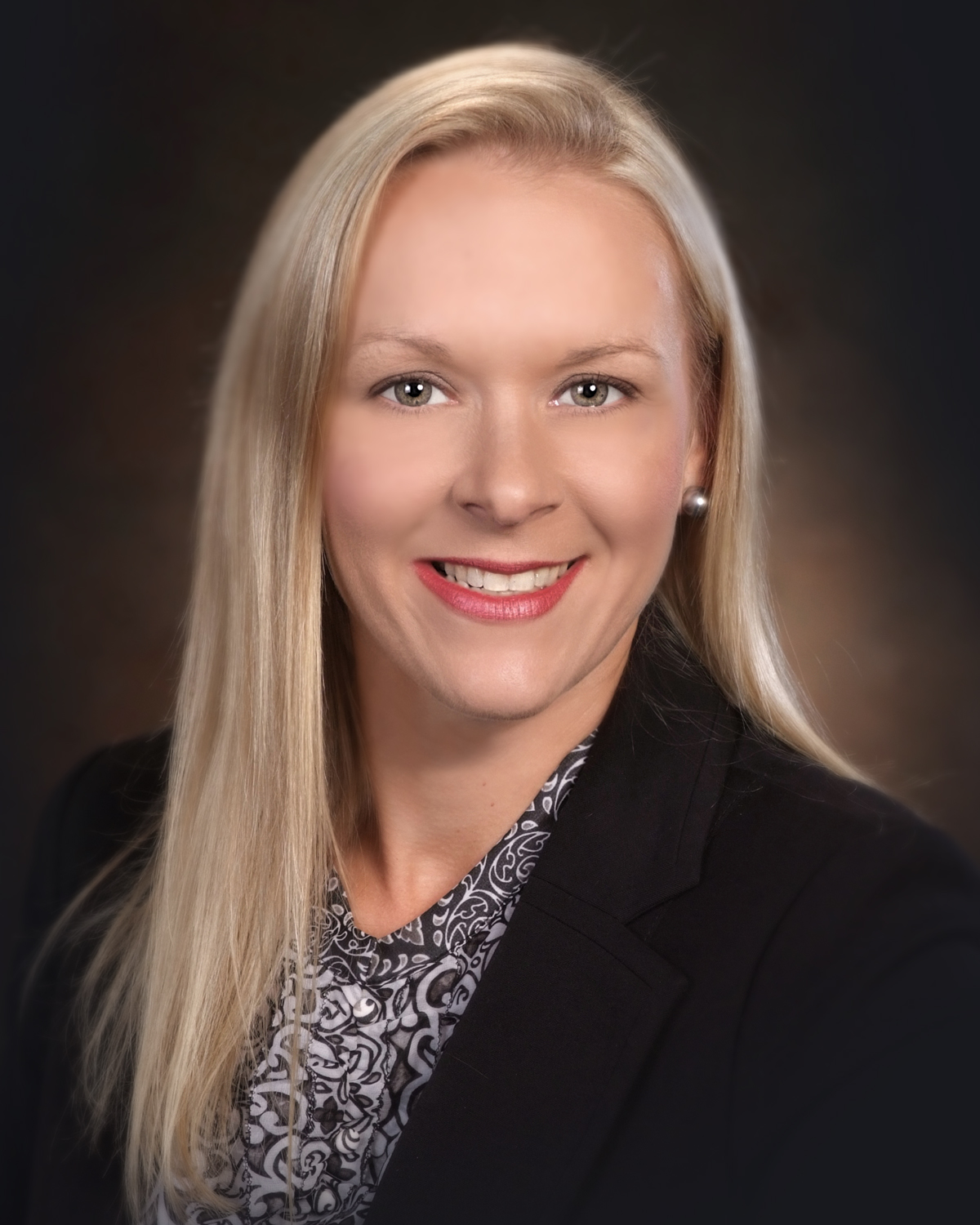 Kristy L. Vienne
Kristy L. Vienne Michael Barnette
Michael Barnette
 Christine Self
Christine Self JoAnna Benavides-Franke
JoAnna Benavides-Franke Ashley Spicer-Runnels
Ashley Spicer-Runnels Christa Coffey, Ed. D.
Christa Coffey, Ed. D.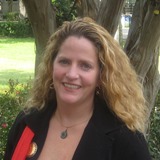 Pamelyn Klepal Shefman, PhD
Pamelyn Klepal Shefman, PhD
